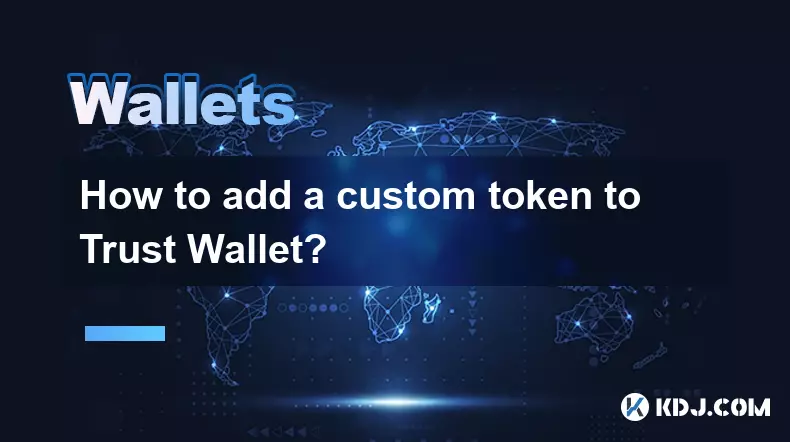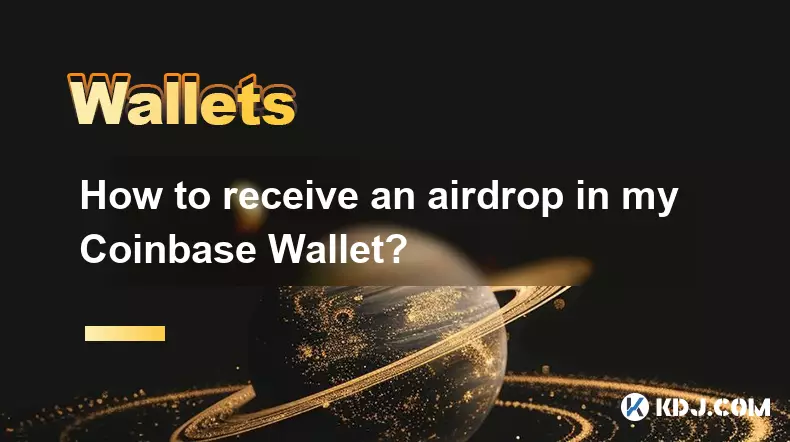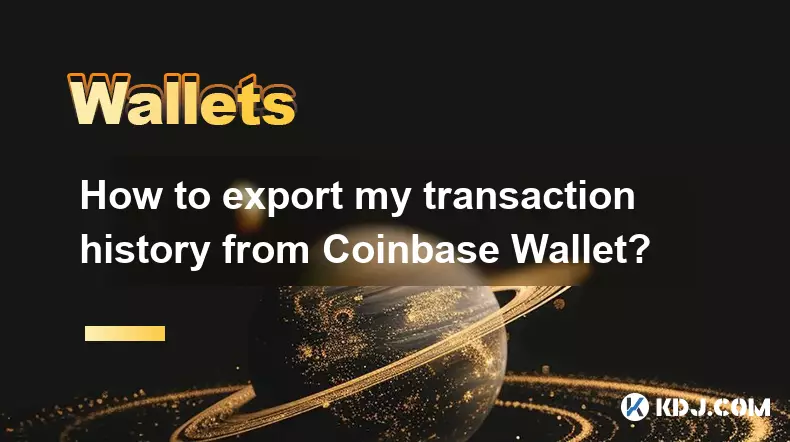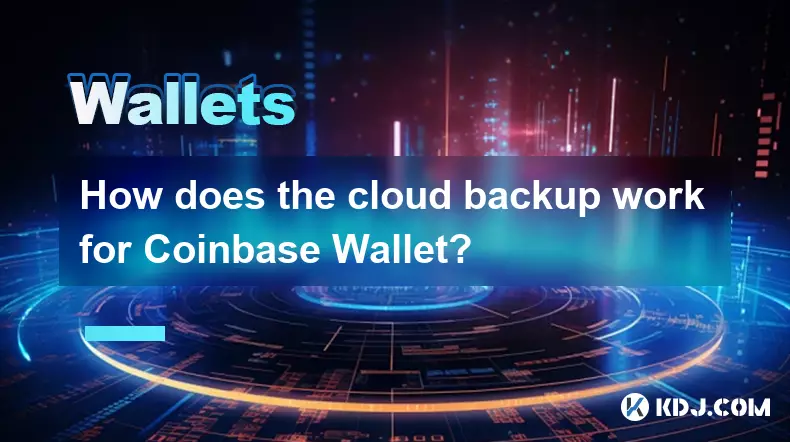-
 bitcoin
bitcoin $114779.865156 USD
2.30% -
 ethereum
ethereum $4226.519789 USD
2.39% -
 tether
tether $1.000545 USD
0.04% -
 xrp
xrp $2.890223 USD
0.92% -
 bnb
bnb $1030.029301 USD
2.95% -
 solana
solana $212.824944 USD
1.69% -
 usd-coin
usd-coin $0.999757 USD
0.01% -
 dogecoin
dogecoin $0.234961 USD
-0.27% -
 tron
tron $0.337174 USD
0.42% -
 cardano
cardano $0.804783 USD
0.09% -
 hyperliquid
hyperliquid $45.748770 USD
-2.85% -
 chainlink
chainlink $21.699170 USD
0.82% -
 ethena-usde
ethena-usde $1.001452 USD
0.08% -
 avalanche
avalanche $30.237800 USD
1.14% -
 stellar
stellar $0.372604 USD
1.52%
How to receive cryptocurrency in Coinbase Wallet?
Receive crypto in Coinbase Wallet by verifying supported coins, sharing your unique wallet address only with trusted senders, and confirming transaction details & fees before finalizing. Security is your responsibility.
Mar 19, 2025 at 04:56 pm

- Coinbase Wallet supports receiving a wide range of cryptocurrencies, but not all. Check compatibility before sending.
- Receiving crypto involves providing your wallet address to the sender. Never share this address if you don't trust the source.
- The process is generally straightforward, but transaction times vary depending on the network.
- Security is paramount; always verify the sender's address and the amount before confirming any transaction.
- Understanding transaction fees is crucial for budgeting and avoiding unexpected costs.
Coinbase Wallet, unlike the Coinbase exchange, is a self-custody wallet, meaning you are solely responsible for your private keys and the security of your assets. Receiving cryptocurrency into your Coinbase Wallet involves a few simple steps, but careful attention to detail is crucial. First, ensure the cryptocurrency you expect to receive is supported by your Coinbase Wallet. Coinbase Wallet supports a broad range of cryptocurrencies, but not every token available on the market. Checking compatibility beforehand prevents potential issues.
To receive funds, you’ll need your wallet address. This is a unique identifier, similar to a bank account number, for your wallet. You can find your wallet address within the Coinbase Wallet app. Each cryptocurrency will have its own specific address. You need to ensure you are using the correct address for the specific cryptocurrency being sent. Using the wrong address will result in the loss of your funds.
Once you have the correct address, share it with the sender. This is the crucial step in receiving your cryptocurrency. Be extremely cautious about who you share this address with. Only provide your wallet address to trusted sources to avoid scams and theft.
After the sender initiates the transaction, you’ll need to wait for the transaction to be confirmed on the relevant blockchain network. This confirmation time varies greatly depending on the network's congestion and the cryptocurrency itself. Some transactions might take only a few minutes, while others might take significantly longer.
After the transaction is confirmed, the received cryptocurrency will reflect in your Coinbase Wallet balance. Always check the transaction details to ensure the correct amount was received and that the sender’s address matches your expectations. Never assume a transaction is complete without confirmation from the blockchain network. The confirmation process often involves a specific number of network confirmations required before the funds are deemed secure.
Transaction fees, or “gas fees,” are an important consideration when receiving cryptocurrency. These fees are charged by the blockchain network for processing the transaction. The sender typically pays these fees, but in some instances, the receiver might be responsible for a portion. Understanding the fee structure of the relevant network is important to avoid unexpected charges.
Security practices are essential when handling cryptocurrencies. Always double-check the sender's address before confirming a transaction. This helps to prevent accidental sending to the wrong address, which is irreversible. Regularly update your Coinbase Wallet app to benefit from the latest security patches and features.
Remember, your private keys are the ultimate access point to your funds. Never share them with anyone. If you lose your private keys, you will lose access to your cryptocurrency.
Common Questions:Q: What happens if I provide the wrong address?A: Sending cryptocurrency to the wrong address is irreversible. The funds are essentially lost. Always double-check the address before sharing it with the sender.
Q: How long does it take to receive cryptocurrency?A: The transaction time depends on the blockchain network and its current congestion. It can range from a few minutes to several hours.
Q: Are there any fees associated with receiving cryptocurrency?A: Typically, the sender pays transaction fees (gas fees). However, some scenarios might involve the receiver paying a portion.
Q: What cryptocurrencies are supported by Coinbase Wallet?A: Coinbase Wallet supports a wide range of cryptocurrencies, but not all. Check the app or Coinbase's website for a complete list of supported tokens. The list is constantly updated, so regular checks are recommended.
Q: Is Coinbase Wallet secure?A: Coinbase Wallet employs security measures to protect user funds. However, as a self-custody wallet, the ultimate responsibility for security lies with the user. Protecting your private keys and practicing safe internet habits is paramount.
Q: What should I do if I don't receive my cryptocurrency?A: First, check the transaction status on a blockchain explorer using the transaction ID. If the transaction is confirmed but the funds haven't arrived, contact Coinbase support. If the transaction is not confirmed, contact the sender to ensure they sent the funds correctly.
Q: Can I receive multiple cryptocurrencies in the same wallet?A: Yes, Coinbase Wallet supports multiple cryptocurrencies. Each cryptocurrency will have its own separate address within the wallet.
Q: Can I receive NFTs in Coinbase Wallet?A: Coinbase Wallet supports receiving some NFTs, but not all. The compatibility depends on the specific NFT and its underlying blockchain.
Q: What should I do if I suspect a scam related to receiving cryptocurrency?A: Never share your private keys or seed phrase with anyone. Report the suspected scam to the appropriate authorities and Coinbase support. Avoid interacting with the scammer further. Do not attempt to recover funds through untrusted third-party services.
Disclaimer:info@kdj.com
The information provided is not trading advice. kdj.com does not assume any responsibility for any investments made based on the information provided in this article. Cryptocurrencies are highly volatile and it is highly recommended that you invest with caution after thorough research!
If you believe that the content used on this website infringes your copyright, please contact us immediately (info@kdj.com) and we will delete it promptly.
- Altcoins Primed for 100x Gains: Cryptocurrencies to Watch
- 2025-09-30 22:45:16
- Debut Auction & XRP ETF Watch: October 18th Auction Set, Crypto's Big Day?
- 2025-09-30 22:45:16
- Navigating Solana Wallets: Your Guide to Secure Crypto in 2025
- 2025-09-30 22:50:11
- BlockchainFX, Crypto & Hyperliquid: Decoding the Future of DeFi in 2025
- 2025-09-30 22:25:13
- Visa's Stablecoin Payout Pilot: Revolutionizing Cross-Border Payments
- 2025-09-30 22:25:13
- Crypto Launchpads: Revolutionizing Blockchain Fundraising for 2025 and Beyond
- 2025-09-30 22:30:13
Related knowledge

How to add a custom token to Trust Wallet?
Sep 30,2025 at 08:36pm
Adding a Custom Token to Trust Wallet: Step-by-Step Guide1. Open the Trust Wallet application on your mobile device and ensure you are logged into you...

How to receive an airdrop in my Coinbase Wallet?
Sep 30,2025 at 11:02pm
Understanding Airdrops in the Cryptocurrency Ecosystem1. Airdrops are a distribution method used by blockchain projects to send free tokens or coins d...

How to export my transaction history from Coinbase Wallet?
Sep 30,2025 at 03:54pm
Understanding Coinbase Wallet Transaction Data1. Coinbase Wallet operates as a self-custodial cryptocurrency wallet, meaning users hold their private ...

How to claim my free web3 username on Coinbase Wallet?
Sep 30,2025 at 09:36pm
How to Claim Your Free Web3 Username on Coinbase WalletCoinbase Wallet has introduced a feature allowing users to claim a free Web3 username. This use...

How to stake Ethereum (ETH) in Coinbase Wallet?
Sep 30,2025 at 03:18pm
Understanding Ethereum Staking on Coinbase Wallet1. Ethereum staking allows users to earn rewards by participating in the network’s proof-of-stake con...

How does the cloud backup work for Coinbase Wallet?
Sep 30,2025 at 02:54pm
Understanding Cloud Backup in Coinbase Wallet1. Coinbase Wallet does not use traditional cloud backup methods to store users’ private keys or seed phr...

How to add a custom token to Trust Wallet?
Sep 30,2025 at 08:36pm
Adding a Custom Token to Trust Wallet: Step-by-Step Guide1. Open the Trust Wallet application on your mobile device and ensure you are logged into you...

How to receive an airdrop in my Coinbase Wallet?
Sep 30,2025 at 11:02pm
Understanding Airdrops in the Cryptocurrency Ecosystem1. Airdrops are a distribution method used by blockchain projects to send free tokens or coins d...

How to export my transaction history from Coinbase Wallet?
Sep 30,2025 at 03:54pm
Understanding Coinbase Wallet Transaction Data1. Coinbase Wallet operates as a self-custodial cryptocurrency wallet, meaning users hold their private ...

How to claim my free web3 username on Coinbase Wallet?
Sep 30,2025 at 09:36pm
How to Claim Your Free Web3 Username on Coinbase WalletCoinbase Wallet has introduced a feature allowing users to claim a free Web3 username. This use...

How to stake Ethereum (ETH) in Coinbase Wallet?
Sep 30,2025 at 03:18pm
Understanding Ethereum Staking on Coinbase Wallet1. Ethereum staking allows users to earn rewards by participating in the network’s proof-of-stake con...

How does the cloud backup work for Coinbase Wallet?
Sep 30,2025 at 02:54pm
Understanding Cloud Backup in Coinbase Wallet1. Coinbase Wallet does not use traditional cloud backup methods to store users’ private keys or seed phr...
See all articles










































































